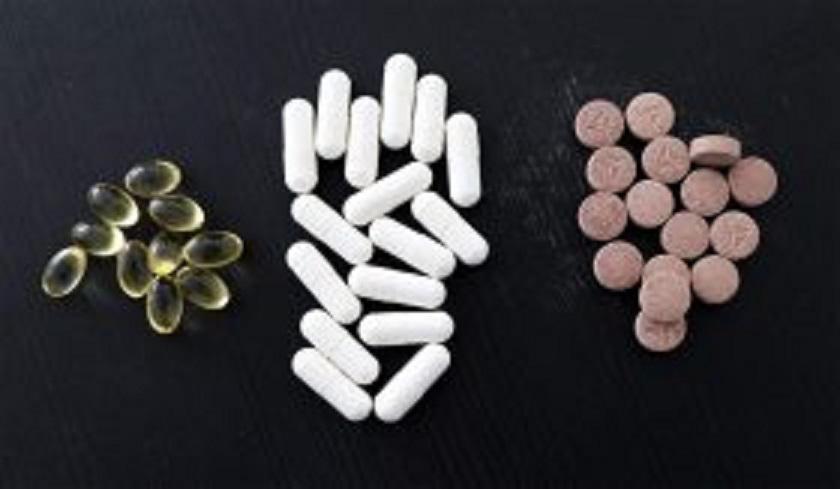
Medications, both, prescription medications and over-the-counter medications can affect your oral health in multiple ways. Many of us are unaware about the effects of medications on teeth and gums. Today, nearly all people aged 50 and above take one or more prescription drugs on a daily basis. There is also a growing trend where people are becoming regular in use of antacids, pain killers and antibiotics. Besides medications in pill form, there are other medications that are administered intravenous, such as chemotherapy drugs and insulin that can affect oral health. Cheweables that include certain vitamin supplements and antacids can lead to formation of plaque.
Consumption of medications often causes side effects that the dentist or oral surgeon needs to be aware of before starting and performing any procedure. For example, blood thinners cause easy bleeding and therefore the dentist may reach out to the patient’s cardiologist to lower the dosage or stop the blood thinner medication temporarily before doing a root canal or extraction. In the same way, patients on diabetes patients may need to adjust their dosages if they are going to undergo a dental procedure so that there is less risk of bleeding and infection. Although medications do not directly cause cavities, they create conditions in the mouth that can lead to decay and cavities over time.
Medications And Their Effects On Oral Health
- Many medications such as antacids, sedatives, pain medications, antihistamines, decongestants, antidepressants, high blood pressure medications can all cause dry mouth. Saliva protects teeth from acid producing bacteria. When the mouth is dry and production of saliva is less, the acid producing bacteria can harm the surfaces of your teeth. That is how dry mouth can lead to tooth decay.
Antacids are notorious for stopping heart burn and reflux but giving an easy way for tooth decay. Antacids make your teeth weak by slowing and stopping the absorption of protein and calcium that make your teeth and jaws strong. They also cause dry mouth and create a favorable condition for bacteria to thrive. - Antacids, gummies and other medications and supplements are often sweetened. This promotes the formation of plaque and cause decay that can contribute to formation of cavities over time.
- Medications that are inhaled through mouth can also create a condition for cavities. Sometimes oral candidiasis or oral fungal infections are caused due to use of inhalers. Incorrect and prolonged use of inhalers can pose a risk for fungal infections and/or thrush. It is, therefore, important that you thoroughly rinse your mouth after using an inhaler.
- Cancer treatments such as chemotherapy and radiation can affect teeth and gums. These drugs are very powerful and can lead to a host of side effects that includes effects to oral health. It is a good idea to discuss your oral health issues with your doctor before beginning cancer treatments so that he or she can give you guidance on how to maintain oral health or prevent damage. You should also discuss if and how you can complete your dental procedures if you are going to undergo cancer treatments. If you are already undergoing dental procedures, you should let your dentist know about your cancer treatment plan so that any medication reactions can be discussed and planned for.
- Gingival overgrowth or swelling of gum tissue is a side effect produced by certain medications such as seizure medications, immunosuppressants and certain blood pressure medications. Gingival overgrowth can lead to gingivitis or gum disease.
- Chemotherapy can also cause mucositis, which is an inflammation of the moist tissue lining of the mouth and digestive tract. Certain chemo drugs damage this lining called the mucous membrane that leads to conditions such as ulcers, mouth sores, mouth bleeds and painful swelling in the mouth.
- Many medicines can cause metallic taste in the mouth. Sometimes the metallic taste is very strong and can affect one’s appetite and taste buds. Patients with severe conditions sometimes do not eat and drink enough fluids because they continuously have a metallic taste in their mouth. Medicines that create metallic or strong bitter taste include antibiotics, antihistamines, antifungals, antipsychotics, blood pressure medications, bisphosphonates, asthma medications, blood thinners, diabetes drugs, diuretics, heart medications, glaucoma medications, muscle relaxants, anemia medications, gout medications, medications for Parkinson’s, thyroid control drugs, cholesterol lowering medications, tuberculosis medications, some anti-inflammatory drugs and many more medications.
Medications affect oral health to a very large extent. That is why, it is important for your dentist to know all your medical history, medications you are taking and any other medical procedures that you have gone through or are going through. This will help the dentist to devise a correct plan of treatment for you. It is also necessary to keep your dental office updated with any changes in your medical history and medicine usage.

